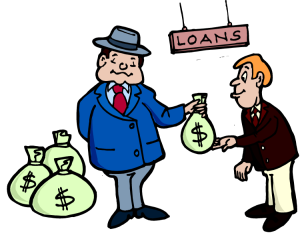Making $1 Million Dollars: How Did They Do It?
 Everyone wants to make his or her first $1 million by 30, or so it seems. These days, making $1 million on your own accord, that is, without an inheritance or winning lottery ticket, can seem like a dream too good to be true.
Everyone wants to make his or her first $1 million by 30, or so it seems. These days, making $1 million on your own accord, that is, without an inheritance or winning lottery ticket, can seem like a dream too good to be true.
However, this goal is certainly not impossible. With a combination of careful saving, audacious investing, and a large dose of patience, many have succeeded in making their first $1 million and a couple million after that too. Here we meet five people and hear their advice on how you can do the same.
The boring way
Jason, aged 45, explains that he made his first million ‘by saving and investing, then waiting a few decades’, or, as he rationalises, ‘the boring way’. Steadily working for various companies since the age of 22, Jason started earning 20K a year and today earns somewhere in the vicinity of 100K. Jason saved the majority of this, only splurging on a car and Mac laptop. Couple that with some smart investments in early purchases of Microsoft and Starbucks stocks, and you can see that earning $1 million is a task of much patience and sacrifice.
Enjoying the game
Terry, aged 30, recently hit $3 million in liquid net worth and explains that making money is like a game. ‘[I]f you enjoy playing it, then it becomes easier and easier with time’. Terry became saving as a high school graduate and college student, investing graduation monies into selling and reselling items online. After graduation, Terry started an eCommerce website alongside a job that paid 100K a year. His advice: ‘verse yourself on lots of different businesses [and p]lay for the long-term’.
Read up on it
Nathaniel, aged 32, hit the $1 million mark at aged 30, a big achievement coming from a farming family that struggled with their finances. As a teenager, Nathaniel saved money during the holidays by working for local businesses. He also started reading books on investing and money management, for example, by Robert Kiyosak. Buying his first home at 25, Nathaniel rented out two rooms, making a healthy profit and using the equity to invest in additional properties. As he notes sagely, ‘everything that I am doing is very long term’.
Buy and sell smart
Jodie, aged 38, has $3 million in net worth and exclaims that ‘it can be done’. Beginning at the age of 19, her simple philosophy is to buy and smell smart. At 19, she bought and sold clothes and cologne, making 3K. At 24, she did the same with Domain names, creating 100K. In recent times, she has invested in property and financial/auto stocks during the collapse, making upwards of $2 million. Her advice: ‘[y]ou just have to believe and keep parlaying to the next thing’.
Matching expenses with income
Elaine, aged 35, accumulated $1 million in net worth at the age of 30. She began saving as an investment bank analyst in a foreign country, working long hours and capitalising on a low local tax rate. Back in the US, she joined a private equity firm and began investing her liquid assets carefully in stocks. With a first child on the way, Elaine began to adjust her spending in line with increases in her wage income. She attributes her financial success to this mixture of careful spending and personal investment.
Note: some names have been changed.
Amy Hopkins is a university student and freelance writer who is interested in business. She has recently been reading up on managed funds.
















